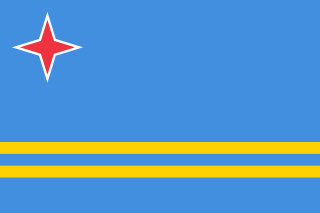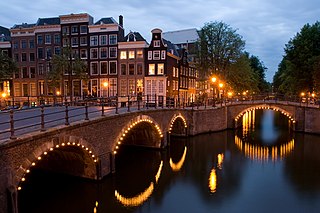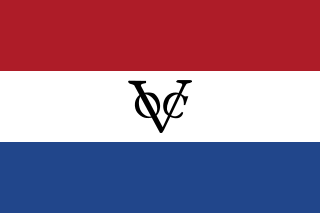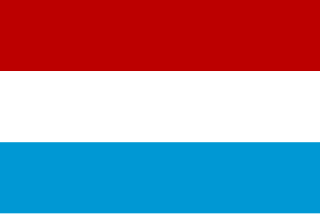| Look up Hollander in Wiktionary, the free dictionary. |
Hollander is a surname.
Hollander may also refer to:
- Hollander beater, a paper pulp machine
- Dutch rabbit
- A breed of domestic pigeon
- A brand of infant and child nutrition in New Zealand.
| Look up Hollander in Wiktionary, the free dictionary. |
Hollander is a surname.
Hollander may also refer to:
| This disambiguation page lists articles associated with the title Hollander. If an internal link led you here, you may wish to change the link to point directly to the intended article. |

Aruba is an island and a constituent country of the Kingdom of the Netherlands in the southern Caribbean Sea, located about 1,000 kilometres (620 mi) west of the main part of the Lesser Antilles and 29 kilometres (18 mi) north of the coast of Venezuela. It measures 32 kilometres (20 mi) long from its northwestern to its southeastern end and 10 kilometres (6 mi) across at its widest point. Together with Bonaire and Curaçao, Aruba forms a group referred to as the ABC islands. Collectively, Aruba and the other Dutch islands in the Caribbean are often called the Dutch Caribbean.

Amsterdam is the capital and most populous city of the Netherlands with a population of 872,680 within the city proper, 1,380,872 in the urban area and 2,410,960 in the metropolitan area. Found within the province of North Holland, Amsterdam is colloquially referred to as the "Venice of the North", attributed by the large number of canals which form a UNESCO World Heritage Site.

Afrikaans is a West Germanic language spoken in South Africa, Namibia and, to a lesser extent, Botswana and Zimbabwe. It evolved from the Dutch vernacular of Holland spoken by the largely Dutch settlers in the south-west of what is now South Africa, where it gradually began to develop distinguishing characteristics in the course of the 18th century. Hence, it is a daughter language of Dutch.

Holland is a region and former province on the western coast of the Netherlands. The name Holland is also frequently used informally to refer to the whole of the country of the Netherlands. This usage is commonly accepted in other countries, and sometimes employed by the Dutch themselves. However, some in the Netherlands, particularly those from regions outside Holland, may find it undesirable or misrepresentative to use the term for the whole country.

The Netherlands, informally Holland, is a country primarily located in Western Europe and partly in the Caribbean, forming the largest constituent country of the Kingdom of the Netherlands. In Europe, it consists of 12 provinces that border Germany to the east, Belgium to the south, and the North Sea to the northwest, with maritime borders in the North Sea with those countries and the United Kingdom. In the Caribbean, it consists of three special municipalities: the islands of Bonaire, Sint Eustatius and Saba. The country's official language is Dutch, with West Frisian as a secondary official language in the province of Friesland, and English and Papiamentu as secondary official languages in the Caribbean Netherlands. Dutch Low Saxon and Limburgish are recognised regional languages, while Sinte Romani and Yiddish are recognised non-territorial languages.

Suriname, officially known as the Republic of Suriname, is a country on the northeastern Atlantic coast of South America. It is bordered by the Atlantic Ocean to the north, French Guiana to the east, Guyana to the west and Brazil to the south. At just under 165,000 square kilometers, it is the smallest sovereign state in South America. Suriname has a population of approximately 575,990, most of whom live on the country's north coast, in and around the capital and largest city, Paramaribo.

The Hague is a city on the western coast of the Netherlands on the North Sea and the capital of the province of South Holland. It is also the seat of government of the Netherlands and hosts the International Court of Justice, one of the most important courts in the world.

The Dutch East India Company, officially the United East India Company, was a megacorporation founded by a government-directed amalgamation of several rival Dutch trading companies (voorcompagnieën) in the early 17th century. It was established on 20 March 1602, as a chartered company to trade with Mughal India during the period of proto-industrialization, from which 50% of textiles and 80% of silks were imported, chiefly from its most developed region known as Bengal Subah. In addition, the company traded with Indianised Southeast Asian countries when the Dutch government granted it a 21-year monopoly on the Dutch spice trade. It has been often labelled a trading company or sometimes a shipping company. However, the VOC was in fact a proto-conglomerate, diversifying into multiple commercial and industrial activities such as international trade, shipbuilding, and both production and trade of East Indian spices, Indonesian coffee, Formosan sugarcane, and South African wine. The company was a transcontinental employer and a corporate pioneer of outward foreign direct investment at the dawn of modern capitalism. In the early 1600s, by widely issuing bonds and shares of stock to the general public, VOC became the world's first formally listed public company.

William III, also widely known as William of Orange, was sovereign Prince of Orange from birth, Stadtholder of Holland, Zeeland, Utrecht, Guelders and Overijssel in the Dutch Republic from the 1670s and King of England, Ireland and Scotland from 1689 until his death. Popular histories usually refer to his joint reign with his wife, Queen Mary II, as that of William and Mary. As King of Scotland, he is known as William II. He is sometimes informally known as "King Billy" in Ireland and Scotland. His victory at the Battle of the Boyne in 1690 is still commemorated by unionists, who display orange colours in his honour.

The United Provinces of the Netherlands, or simply United Provinces, and commonly referred to historiographically as the Dutch Republic, was a federal republic formally established from the formal creation of a federal state in 1581 by several Dutch provinces—seceded from Spanish rule—until the Batavian Revolution of 1795. It was a predecessor state of the Netherlands and the first fully independent Dutch nation state.

Curaçao is a Lesser Antilles island country in the southern Caribbean Sea and the Dutch Caribbean region, about 65 km (40 mi) north of the Venezuelan coast. It is a constituent country of the Kingdom of the Netherlands. Together with Aruba and Bonaire it forms the ABC islands. Collectively, Curaçao, Aruba, and other Dutch islands in the Caribbean are often called the Dutch Caribbean.

The Belgium national football team officially represents Belgium in men's international football since their maiden match in 1904. The squad is under the global jurisdiction of FIFA and is governed in Europe by UEFA—both of which were co-founded by the Belgian team's supervising body, the Royal Belgian Football Association. Periods of regular Belgian representation at the highest international level, from 1920 to 1938, from 1982 to 2002 and again from 2014 onwards, have alternated with mostly unsuccessful qualification rounds. Most of Belgium's home matches are played at the King Baudouin Stadium in Brussels.

The Eredivisie is the highest echelon of professional football in the Netherlands. The league was founded in 1956, two years after the start of professional football in the Netherlands. As of the 2019–20 season it is ranked the 9th best league in Europe by UEFA.

Dutch people or the Dutch are a Germanic ethnic group and nation native to the Netherlands. They share a common ancestry, culture and speak the Dutch language. Dutch people and their descendants are found in migrant communities worldwide, notably in Aruba, Suriname, Guyana, Curaçao, Argentina, Brazil, Canada, Australia, South Africa, New Zealand, and the United States. The Low Countries were situated around the border of France and the Holy Roman Empire, forming a part of their respective peripheries, and the various territories of which they consisted had become virtually autonomous by the 13th century. Under the Habsburgs, the Netherlands were organised into a single administrative unit, and in the 16th and 17th centuries the Northern Netherlands gained independence from Spain as the Dutch Republic. The high degree of urbanization characteristic of Dutch society was attained at a relatively early date. During the Republic the first series of large-scale Dutch migrations outside of Europe took place.

The Netherlands national football team has represented the Netherlands in international football matches since 1905. The national team is controlled by the Royal Dutch Football Association (KNVB), which is a part of UEFA, and under the jurisdiction of FIFA the governing body for football in the Netherlands. Most of the Netherlands' home matches are played at the Johan Cruyff Arena and the Stadion Feijenoord. The team is colloquially referred to as Het Nederlands Elftal or Oranje, after the House of Orange-Nassau. Like the country itself, the team is sometimes referred to as Holland. The fan club is known as "Het Oranje Legioen".

Dutch(

The Dutch East Indies was a Dutch colony consisting of what is now Indonesia. It was formed from the nationalised colonies of the Dutch East India Company, which came under the administration of the Dutch government in 1800.

Thomas Stanley Holland is an English actor. A graduate of the BRIT School in London, he began his acting career on stage in the title role of Billy Elliot the Musical in London's West End from 2008 to 2010. He gained further recognition for his starring role in the disaster film The Impossible (2012), receiving the London Film Critics Circle Award for Young British Performer of the Year.
Eurosport 1 is a pan-European television sports network channel operated by Eurosport, a subsidiary of Discovery, Inc. Discovery took a 20% minority interest share in December 2012, and became majority shareholder in the Eurosport venture with TF1 in January 2014, taking a 51% share of the company, On 22 July 2015 Discovery agreed to acquire TF1's remaining 49% stake in the venture.

The COVID-19 pandemic in the Netherlands is part of the ongoing pandemic of coronavirus disease 2019 caused by severe acute respiratory syndrome coronavirus 2. The virus was confirmed to have spread to the Netherlands on 27 February 2020, when its first COVID-19 case was confirmed in Tilburg. It involved a 56-year-old Dutchman who had arrived in the Netherlands from Italy, where the COVID-19 pandemic seemed to enter Europe. As of 21 July, there are 52,073 confirmed cases of infections and 6,136 confirmed deaths. The first death occurred on 6 March, when an 86-year-old patient died in Rotterdam.